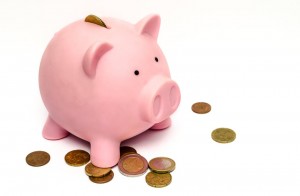1. The Good & The Bad – It All Matters
Having a credit card is a great way to build your credit score but it also means you can hurt your credit score. What is a credit score? You credit score ranges from 300 to 900 – the higher the number, the better your score.* A credit score will follow you around for the rest of your life. While this is not meant to scare you out of a credit card, it is a reminder that it is a big responsibility. Credit scores can affect your ability to receive student loans, apply for lines of credit, even getting a mortgage, and find employment in certain industries. But there is an easy way to ensure this doesn’t happen to you. Just remember that making regular payments to your credit card that are on time is important to maintaining a good credit score.
*For more detailed information on what a credit score is and how to understand yours see “Credit Reports and Scores” on the Government of Canada website here: https://www.canada.ca/en/financial-consumer-agency/services/credit-reports-score.html
2. Shop around
Don’t just say yes to the first bank or store that offers you and approves you for a credit card. Freebies and other goodies offered does not automatically mean it’s a great deal! Take the time to look around and search for low APRs (annual percentage rate—aka the amount of interest you’ll pay if you don’t pay off your balance in full each month). Take your time and make sure you’re fully informed before making a decision.
3. A credit card is NOT free money
Number two leads well into number three. Every dollar you put on your credit card is borrowed money. It will collect interest. Remember this when you are making a payment with your card. Therefore, you really want to avoid cash advances because you are charged interest immediately and you want to aim to clear your balance monthly.
4. A great rule: Don’t have the cash? Don’t put it on credit!
Last but most definitely not least – credit is a loan and as number three reminds you, a credit card is not free money!Unless you have the physical $200.00 for that dress or those concert tickets sitting aside you will have to pay interest which means it will end up costing you a lot more money. You will receive a monthly bill and if you do not pay the bill you will be charged interest and a minimum monthly payment. Avoid unnecessary credit card debt by only spending what you can afford to immediately pay off. If this still worries you, look into prepaid and re-loadable credit cards for those times you need to order concert tickets or buy books for class online.
If you remember to pay your bills on time each month and keep your credit card balance as low as possible, you’ll maintain good credit. Apply for credit cards only as needed.
For more great tips about being responsible with your credit card check out the Financial Consumer Agency of Canada’s webpage called, “Be smart with your credit card: Tips to help you use your credit card wisely” and follow the links on the webpage for even more information about being a safe and responsible credit card holder.
http://www.fcac-acfc.gc.ca/eng/resources/publications/creditCards/Pages/BeSmartw-Utilisez.aspx







